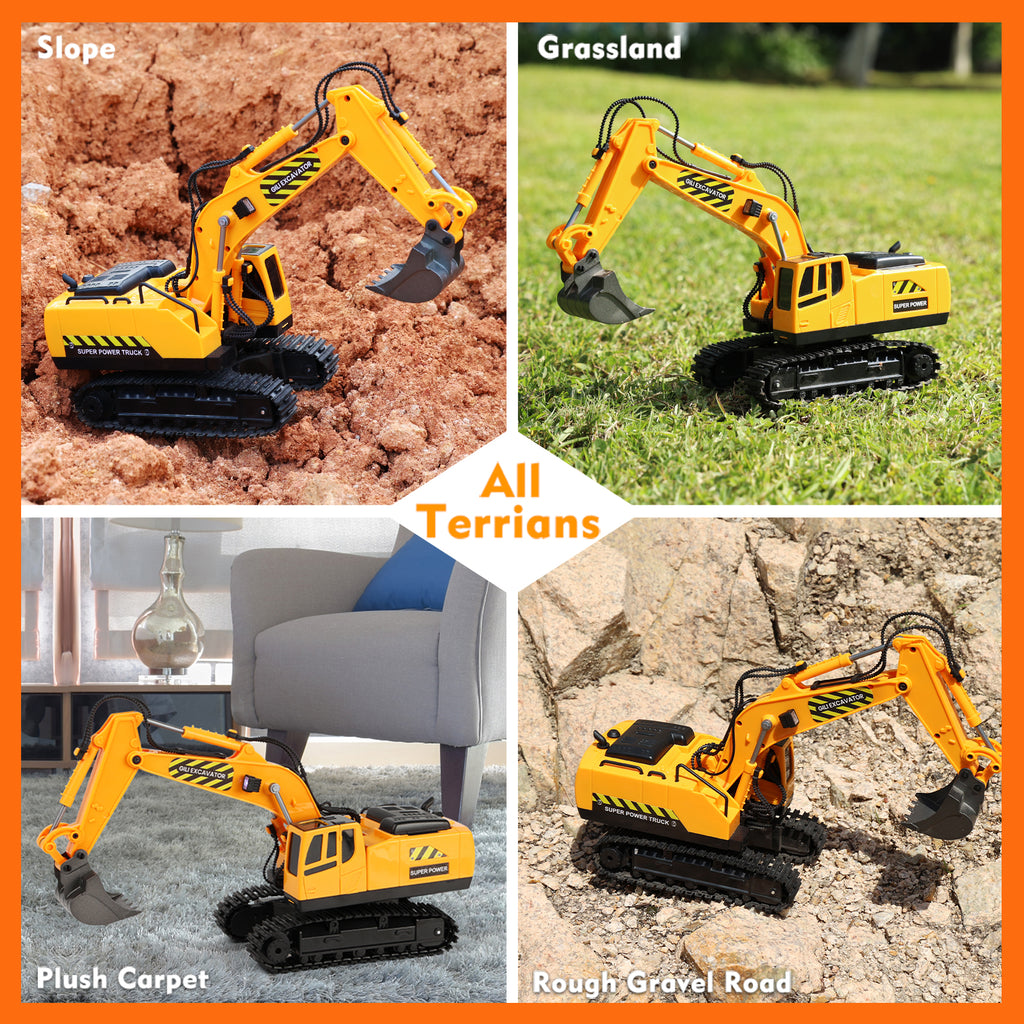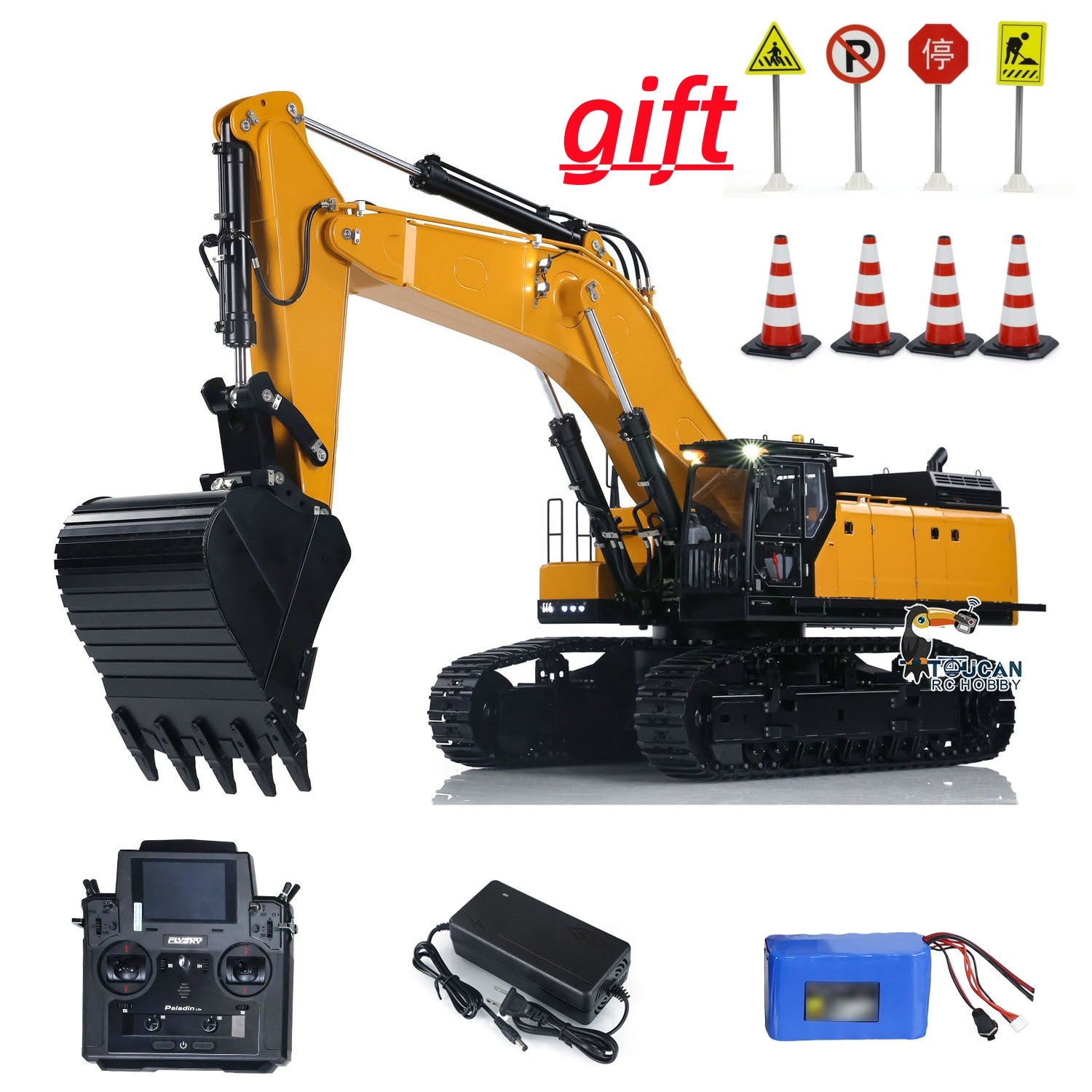Discover the Importance of Excavator in Modern Building Projects
Excavators are vital devices in modern construction jobs. Their versatility permits them to perform a variety of tasks, from excavating and grading to demolition and website preparation. Advanced functions, such as hydraulic accessories and GPS, enhance their capabilities and performance on job sites. As the market advances, the value of excavators grows much more. Comprehending their duty can expose insights right into the future of construction techniques. What exists in advance for these equipments?
The Flexibility of Excavators in Different Projects
Although excavators are commonly related to large-scale building tasks, their versatility permits them to be made use of in a wide variety of applications, from residential landscaping to energy upkeep. In urban settings, excavators can browse limited areas to dig structures for homes or set up drain systems. Their capacity to do delicate tasks makes them optimal for landscape design jobs, where they can excavate for ponds or plant trees. On top of that, excavators play a crucial role in energy maintenance, successfully digging trenches for pipes or cables without interrupting bordering areas. In agricultural applications, they help in land clearing and soil preparation. In addition, their versatility allows them to be equipped with various add-ons, boosting their capability across different tasks. This multifaceted nature of excavators not just streamlines numerous building and construction procedures yet likewise demonstrates their integral duty in modern facilities growth and upkeep.
Trick Features and Sorts Of Excavators
The discussion on essential attributes and kinds of excavators highlights the important qualities that make these machines invaluable in construction. Different excavator kinds, each developed for particular tasks, demonstrate their versatility and efficiency across different applications. rc excavator. Recognizing these attributes and categories is important for maximizing their usage in contemporary construction tasks
Excavator Types Review
Excavators play an essential duty in modern construction, supplying adaptability and effectiveness across numerous tasks. These hefty machinery devices been available in numerous types, each customized for details applications. The most typical kinds include spider excavators, recognized for their stability on irregular terrain, and wheeled excavators, which offer higher movement on paved surface areas. Mini excavators are preferred for small-scale tasks and limited rooms, while long-reach excavators are developed for deep digging. In addition, there are specific excavators, such as hydraulic excavators, which improve power and accuracy. Each type features unique abilities, making them important for tasks ranging from excavating and grading to demolition and material handling. Understanding these variations allows construction specialists to pick the ideal excavator for their job needs.
Key Includes Explained
Comprehending the crucial functions of excavators enhances their effective application in building and construction tasks. Excavators are defined by their powerful hydraulic systems, which provide the necessary force for digging, training, and relocating materials. Their articulated arms enable a large range of motion, helping with precise procedures in constrained rooms. Additionally, the selection of accessories, such as pails, grapples, and augers, broadens their versatility to satisfy various project needs. The size and weight of excavators also add to their stability and ability to move on numerous terrains. Moreover, advancements in modern technology have brought about the combination of general practitioner and automation, enhancing accuracy and efficiency in excavation jobs. These features jointly position excavators as indispensable devices in modern building.
Applications in Construction
Changing building and construction sites, excavators play a crucial role throughout numerous applications, ranging from residential building projects to massive infrastructure advancements. These functional machines are geared up for jobs such as excavating foundations, trenching for utilities, and website grading. Different types of excavators, consisting of spider, wheeled, and mini excavators, provide certain advantages tailored to the task demands. Spider excavators succeed in rough surfaces, while wheeled excavators use wheelchair on paved surface areas. Small excavators are optimal for constrained spaces, making them prominent in metropolitan setups. The performance and power of excavators considerably quicken building and construction procedures, ensuring timely project completion. Their adaptability even more improves their value, permitting building and construction groups to deal with a varied selection of obstacles effectively.
Enhancing Effectiveness and Efficiency on Work Sites
Maximizing efficiency and productivity on work websites is a crucial goal in modern building. Excavators play an essential function in attaining this goal by simplifying various jobs. Their capacity to execute multiple functions-- such as grading, digging, and lifting-- decreases the requirement for added tools, therefore conserving time and resources.Moreover, excavators enhance operations by enabling for faster completion of projects. With sophisticated features like hydraulic accessories and GPS modern technology, they can execute precise operations that reduce mistakes and rework. This accuracy not just enhances the quality of job however likewise maximizes product usage, contributing to cost savings.The flexibility of excavators permits them to adapt to different site problems, ensuring that jobs advance efficiently despite difficulties. By integrating excavators right into building procedures, groups can considerably improve their total performance, resulting in timely task completion and enhanced profitability.
Safety Benefits of Using Excavators
Excavators considerably improve security on construction sites via boosted driver exposure and reduced manual labor risks. By supplying drivers with a clear sight of their environments, excavators assist to stop crashes and injuries. Additionally, the equipment minimizes the requirement for employees to engage in harmful hands-on tasks, additionally advertising a safer workplace.
Enhanced Driver Presence
Although building and construction sites can be disorderly and loaded with possible threats, boosted driver presence plays a crucial function in guaranteeing security when making use of excavators. Modern excavators are designed with big, unobstructed windows and purposefully put mirrors, permitting drivers to keep a clear view of their environments (rc excavator). This boosted visibility is important for detecting pedestrians, various visit this web-site other machinery, and various challenges, considerably decreasing the threat of mishaps. In addition, numerous excavators incorporate sophisticated modern technology, such as sensing units and electronic cameras, to give drivers with extra point of views, better enhancing understanding. The capacity to see even more clearly not only help in effective operation yet likewise cultivates a safer work setting, making visit here it simpler for drivers to browse intricate building and construction sites without jeopardizing safety and security criteria
Minimized Manual Labor Risks
When manual work is lowered through using excavators, many security advantages emerge, considerably boosting the health of construction employees. Excavators reduce the physical pressure connected with hefty training and recurring tasks, successfully decreasing the threat of bone and joint injuries. By automating procedures such as digging, grading, and moving products, they permit workers to keep a much safer range from potential hazards. In addition, excavators are geared up with innovative safety and security functions, such as rollover defense systems and enhanced driver ergonomics, which even more safeguard employees on website. The result is a substantial reduction in work environment crashes and injuries, resulting in boosted performance and morale amongst construction teams. Eventually, the fostering of excavators adds to a safer and extra efficient construction environment.
Excavators in Earthmoving and Site Prep Work
In modern building and construction, a significant part of earthmoving and site preparation jobs relies upon the performance and versatility of excavators. These equipments are designed to deal with numerous soil types and surface, making them indispensable for rating, digging, and trenching tasks. Their hydraulic arms can be equipped with different accessories, such as augers and buckets, allowing operators to customize their approach based upon details project requirements.Excavators succeed at moving large quantities of earth quickly and effectively, which accelerates the total construction timeline. They can navigate tight spaces and challenging websites where traditional tools might struggle, improving performance. Furthermore, the precision of excavators warranties that website preparation abides by rigorous specs, lessening the threat of mistakes that can result in pricey rework.
The Function of Excavators in Demolition Tasks
Excavators play a crucial duty in demolition tasks, as they possess the power and agility required to dismantle structures efficiently. Furnished with various attachments such as hydraulic breakers, shears, and grapples, these machines can adjust to different demolition demands, whether for site little buildings or big commercial websites. Their adaptability allows drivers to deal with complex jobs while preserving safety and precision.In enhancement to their demolition capabilities, excavators facilitate debris removal, guaranteeing that job sites continue to be safe and orderly. By breaking down structures into manageable items, they enable structured cleaning and recycling of materials, straightening with modern-day sustainability efforts.Moreover, excavators can access tight spaces and navigate irregular terrain, making them essential in urban demolition tasks. Generally, their durable layout and multifunctionality make excavators a crucial property in the demolition stage of building and construction, adding substantially to job timelines and effectiveness.


Future Trends in Excavator Modern Technology and Usage
As the building and construction market progresses, developments in excavator innovation are positioned to transform their use and performance significantly. One considerable trend is the combination of automation and expert system, permitting excavators to run with very little human treatment. This change will improve accuracy in jobs such as grading and trenching, lowering human mistake and enhancing productivity.Additionally, the rise of electrical and hybrid excavators is shaping an extra lasting building setting, decreasing carbon exhausts and gas prices. Boosted telematics systems are additionally emerging, making it possible for real-time surveillance of equipment efficiency and maintenance demands, which can cause far better functional effectiveness and longer devices lifespan.Moreover, developments in attachment technology are expanding the convenience of excavators, allowing them to execute a more comprehensive series of jobs. The combination of these trends demonstrates a future where excavators are smarter, greener, and more versatile, inevitably reshaping building task characteristics.
Frequently Asked Questions
Just How Do Excavators Compare to Various Other Construction Equipment?
Excavators, defined by their convenience and power, succeed in digging and earthmoving compared to other machinery. Their capacity to perform various tasks, including lifting and demolition, makes them vital in construction projects, boosting overall effectiveness.

What Is the Average Life Expectancy of an Excavator?
The average lifespan of an excavator usually ranges from 7,000 to 10,000 operating hours, relying on upkeep, use conditions, and model. Proper care can expand this lifespan, making certain peak efficiency throughout its operational years.
How Are Excavators Preserved for Optimal Performance?
Excavators require normal maintenance for peak performance, consisting of routine evaluations, fluid checks, filter replacements, and timely repair services. Applying a precautionary upkeep routine aids prolong their life-span and guarantees effective procedure in various building environments.
What Are the Expenses Linked With Purchasing an excavator vs. leasing?
The prices related to renting versus purchasing an excavator vary substantially. Renting out deals reduced upfront expenses but can accumulate in time, while buying requires a substantial first investment, however gives lasting financial savings and possession ownership advantages.
What Training Is Needed to Operate an Excavator?
Running an excavator needs specialized training, usually including safety and security procedures, machine operation techniques, and environmental awareness. Certification programs often mandate functional experience, allowing drivers to take care of various tasks successfully while making certain compliance with industry regulations. The most common types include crawler excavators, known for their stability on irregular terrain, and rolled excavators, which offer greater movement on smooth surface areas. Tiny excavators are favored for tight areas and small-scale jobs, while long-reach excavators are made for deep digging. In addition, there are specialized excavators, such as hydraulic excavators, which boost power and accuracy. Different types of excavators, consisting of crawler, rolled, and mini excavators, give particular benefits tailored to the task demands. Crawler excavators excel in harsh terrains, while wheeled excavators supply wheelchair on paved surface areas.